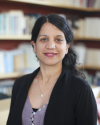Pol S 514/401: The Political Theory of Hannah Arendt
Autumn 2025
Instructor: Noga Rotem (nrotem@uw.edu)
Office hours: by appointment
Interest in 20th-century political thinker Hannah Arendt has surged over the past decade in both academic and non-academic circles. Arendt’s writing on fascist movements, mobs and elites, the masses’ attraction to lying fantasies, her critique of Zionism, and account of antisemitism, all seem to be urgently timely and relevant. Many commentators describe her work as prescient. Yet to read Arendt as someone who has ‘seen it all coming’ risks obscuring one her most important commitments: that what happens in history is not inevitable, and that “we are free to change the world” (to quote the title of Lyndsey Stonebridge new biography of Arendt).
Arendt herself arguably wrote in order to change the world. Her work is driven not only by a desire to understand “What happened? Why did it happen? How could it have happened?” (as she put it in The Origins of Totalitarianism), but also by a deep commitment to repair the world.
This seminar will ask: what kinds of guidelines for action does Arendt offer in political situations where “the chips are down”? Reading Arendt’s accounts totalitarianism, of McCarthyism in the United States, and of Israel/Palestine, we will ask: what resources are available for us to carve a space for freedom within constraint, to withdraw our support from or resist oppressive structures of power, and to summon new worlds under conditions of catastrophe?
This seminar will read a selection of works from Arendt’s work, focusing on Arendt’s accounts of evildoers, victims, rebels, those who capitulate, collaborators, onlookers and enablers of/in dark times.
